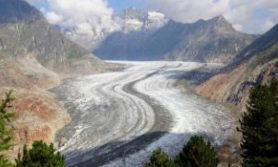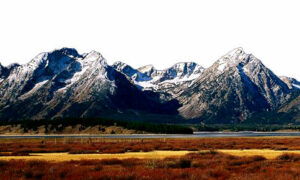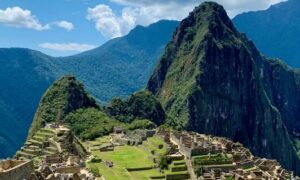Update
Mountains and the Role of Geneva
About
As of 2003, International Mountain Day has been observed every year on 11 December to create awareness about the importance of mountains to life, to highlight the opportunities and constraints in mountain development and to build alliances that will bring positive change to mountain peoples and environments around the world. #MountainsMatter
The Food and Agriculture Organization of the United Nations (FAO) is the coordinating agency for the preparation and animation of this celebration and is mandated to lead observance of it at the global level.
Mountains and the Environment
Covering around 27% of the earth’s land surface and home to 15% of the world’s population, mountains are essential for human lives and livelihoods. Mountains not only provide sustenance and well-being to 1.1 billion mountain people around the world but also indirectly benefit billions more living downstream. These regions provide freshwater, energy and food – resources that will be increasingly scarce in coming decades. For example, more than half of humanity relies on mountain freshwater for everyday life.
Mountains also host about half of the world’s biodiversity hotspots and 30% of all Key Biodiversity Areas. As such, their conservation is a key factor for sustainable development and is part of SDG15.
However, mountains are under threat from climate change and overexploitation. As the global climate continues to warm, mountain people — some of the world’s poorest — face even greater struggles to survive. The rising temperatures also mean that mountain glaciers are melting at unprecedented rates, affecting freshwater supplies downstream for millions of people.
Mountains are also affected by pollution and environmental degradation driven by human activities. For example, the impacts of plastic pollution are heavily felt in mountainous regions. Indeed, plastic is the most common type of waste found in mountains, a trend driven, to a large extent, by tourism. The spread of atmospheric microplastics adds to the plastic waste burden that mountains are already shouldering.
Yearly Themes and Events
Discover the themes of past editions, as well as activities in Geneva below.
The Role of Geneva
Adaptation at Altitude
Adaptation at Altitude is a collaborative programme launched and co-supported by the Swiss Agency for Development and Cooperation (SDC). Through its solutions portal, it allows to explore tried and tested climate change adaptation solutions for mountain regions, see where they have been implemented, and by whom. The Adaptation at Altitude (A@A) Knowledge Network is a global community through which we can share experiences and knowledge on adaptation in the mountains and collaborate to accelerate the uptake of innovative solutions.
Basel, Rotterdam and Stockholm Conventions
The BRS conventions promote the sound management of chemicals and waste to prevent and minimize significant adverse effects on human health and the environment. In particular, the Plastic Waste Amendments to the Basel Convention aims to enhance the control of the transboundary movements of plastic waste and clarifying the scope of the Convention as it applies to such waste. The project “Plastic Waste in Remote and Mountainous Areas” seeks to address these challenges by strengthening capacity and awareness in remote and mountainous areas.
Food and Agriculture Organization (FAO) Liaison Office in Geneva
The Food and Agriculture Organization (FAO) is a specialized agency of the United Nations that leads international efforts to defeat hunger. FAO hosts the Secretariat the Mountain Partnership, the official UN partnership and international voluntary alliance dedicated to improving the lives of mountain peoples and protecting mountain environments around the world. FAO is also leading the yearly campaign for International Mountain Day.
Geneva Water Hub
The Geneva Water Hub aims at better understanding and preventing water-related tensions between competing uses, between public and private actors, and between political entities and countries. Considering that mountains are the ‘water towers of the world’, supplying a substantial part of both natural and anthropogenic water demands, the Geneva Water Hub stresses the important of mountain ecosystems preservation and restoration and monitoring through webinars, publications and partnerships.
Intergovernmental Panel on Climate Change (IPCC)
The Intergovernmental Panel on Climate Change is the United Nations body for assessing the science related to climate change. As part of the Special Report on the Ocean and Cryosphere in a Changing Climate published in 2019, the IPCC dedicated a chapter on High Mountain Areas. Building on the IPCC’s 5th Assessment Report (AR5), this chapter assesses evidence on observed recent and projected changes in the mountain cryosphere as well as associated impacts, risks and adaptation measures related to natural and human systems.
Inter-Parliamentary Union (IPU)
The IPU is the global organization of national parliaments guided by the mission of empowering parliaments and parliamentarians to promote peace, democracy and sustainable development. As part of its engagement to allow parliaments to accelerate climate action, IPU regularly organizes briefings on the celebration of International Mountain Day and related publications.
International Union for Conservation of Nature (IUCN)
Since its establishment in 1948, IUCN has become the global authority on the status of the natural world and the measures needed to safeguard it. IUCN is working for conservation in mountain areas, among other regions. Specific groups working on conservation in mountain areas include the IUCN WCPA Mountains Specialist Group and the IUCN CEM Mountain Ecosystems Specialist Group.
UN Environment Programme’s Europe Office
The UNEP Europe Office covers 55 countries in the pan-European region, which includes the Central Asian plains and spans from the Atlantic to the Pacific, and from the Mediterranean Sea to the Arctic Ocean. the UNEP Europe Office hosts the Framework Convention on the Protection and Sustainable Development of the Carpathians (Carpathian Convention). While UNEP Europe Office is located in Geneva, Switzerland, the Carpathian Convention is hosted in the Vienna Office.
UNEP Global Resource Information Database Geneva (GRID-Geneva)
The Global Resource Information Database – Geneva (GRID-Geneva), is a partnership between the United Nations Environment Programme (UNEP), the Swiss Federal Office for the Environment (FOEN) and the University of Geneva (UNIGE). With a team of 20 Environment Data Scientist, GRID-Geneva main role is to transform data into information and knowledge to support the decision making process related to environmental issues.
United Nations Collaborative Programme on Reducing Emissions from Deforestation and Forest Degradation in Developing Countries (UN-REDD)
The UN-REDD Programme is the United Nations Collaborative Programme on Reducing Emissions from Deforestation and forest Degradation (REDD+) in developing countries. The UN-REDD Programme supports nationally led REDD+ processes and promotes the informed and meaningful involvement of all stakeholders, including indigenous peoples and other forest-dependent communities, in national and international REDD+ implementation. UN-REDD is working to halt deforestation in high mountain areas.
United Nations Office for Disaster Risk Reduction (UNDRR)
UNDRR is the United Nations focal point for disaster risk reduction. UNDRR oversees the implementation of the Sendai Framework for Disaster Risk Reduction 2015-2030, supporting countries in its implementation, monitoring and sharing what works in reducing existing risk and preventing the creation of new risk. As part fo the 2002 United Nations World disaster reduction campaign, UNDRR published a booklet on “Disaster Reduction for Sustainable Mountain Development”.
University of Geneva (UNIGE)
Among other research and education activities, the UNIGE is hosting European Regional Mountain Initiatives (ERMI) research project. This project investigates seven transboundary regional initiatives in mountain regions, from the Pyrenees to the Caucasus. The project seeks to contribute to academic debates on multilevel governance and regionalization processes, with a specific focus on mountains.
World Meteorological Organization (WMO)
The World Meteorological Organization is the UN specialized agency for the promotion international cooperation on atmospheric science, climatology, hydrology and geophysics. WMO hosts the Panel on Polar and High Mountain Observations, Research, and Services and convened the High Mountain Summit from 29 to 31 October 2019 at its headquarters in Geneva, Switzerland. The Summit was concluded with a Call to Action which includes a roadmap to science-based, user-driven knowledge and information systems supporting sustainable development and risk reduction in mountain and downstream regions.
World Wide Fund for Nature (WWF)
The World Wide Fund for Nature is one of the world’s largest conservation organizations. WWF works in various ecosystems, including on mountains as a priority area.
Zöi Environment Network
Zöi Environment Network addresses various thematic, among which climate change and water and their interlinkages. In March 2023, it published a Nexus Brief: Mountains in a Changing Climate offering policy responses to meet the challenges facing both mountain and downstream communities.
GEN Events

Plastic Waste in Mountains
Geneva Beat Plastic Pollution Dialogues & International Mountain Day 2021 | 10 December 2021
Learning

Climate Change and Water in Mountains: A Global Concern
Online
University of Geneva
Resources and Latest News
- COP28 made strong progress on mountains – here’s what to expect in 2024 | Climate Analytics | 20 January 2024
- Restoring mountain ecosystems | Challenges, case studies and recommendations for implementing the UN Decade Principles for Mountain Ecosystem Restoration | FAO and UNEP | 11 December 2023
- Mountains matter and the cryosphere is critical | WMO | 11 December 2023
- Responding to climate change in the mountains: Opportunities for parliamentarians to act | Inter-Parliamentary Union | 20 November 2023
- What can communities teach us? Indigenous and local knowledge for mountain conservation | IUCN | November 2023
- Nexus Brief: Mountains in a Changing Climate | Zöi Environment Network | March 2023
- Mapping the vulnerability of mountain peoples to food insecurity | FAO | 2015
- Why Invest in Sustainable Mountain Development | FAO | 2011
- Mountains and the Sustainable Development Goals | FAO and Mountain Partnership
- Biosphere Reserves in the Mountains of the World | UNESCO, Man and the Biosphere Program, Austrian Academy of Sciences
- Ambition on Melting Ice (AMI) high-level group on Sea-level Rise and Mountain Water Resources






